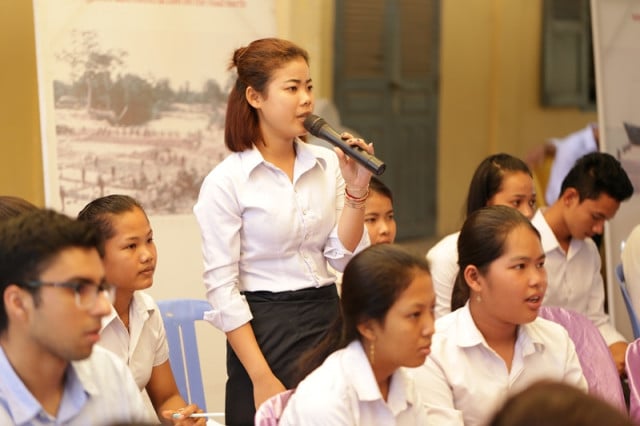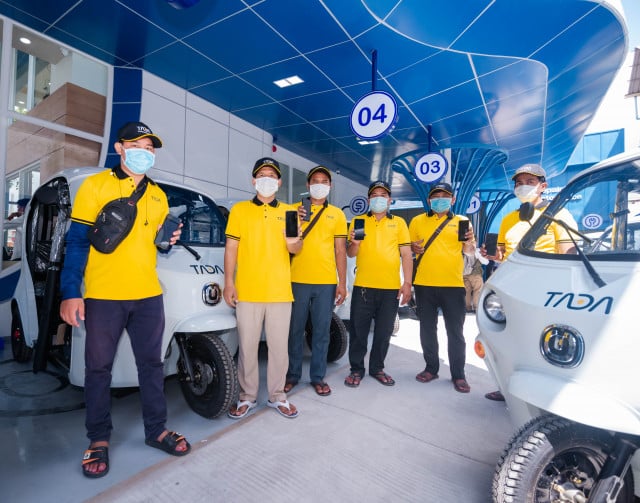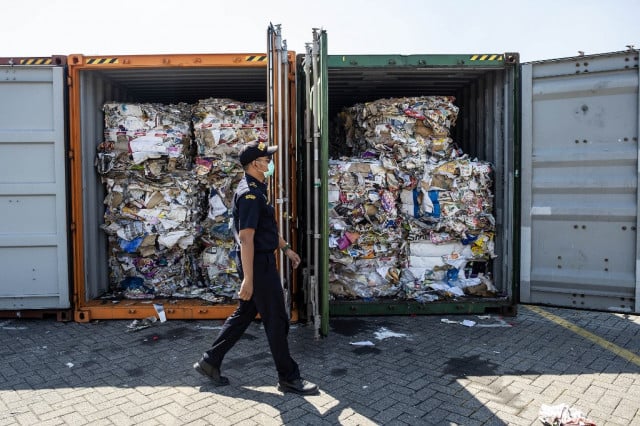Pasteur Institute in Cambodia Turns 70
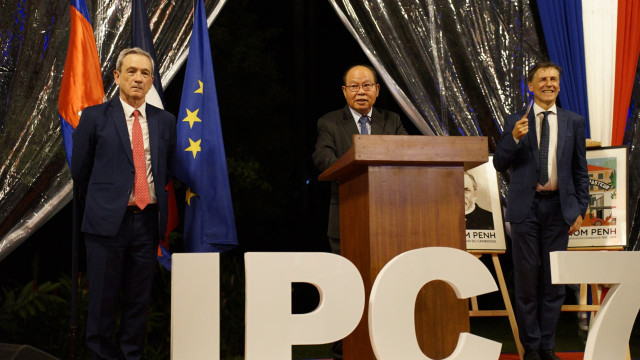
- By François Camps
- May 24, 2023 4:15 PM
PHNOM PENH – The Institut Pasteur du Cambodge (IPC) celebrated its 70th anniversary in the lush gardens of the French Embassy on the evening of May 23.
The ceremony, hosted by Health Minister Mam Bunheng, IPC Director André Spiegel, French Ambassador Jacques Pellet and Paris-based Institut Pasteur International Affairs Director Fernando Arenzana-Seisdedo, offered a chance to review the many actions of the research institute during its seven-decade-long presence in Cambodia.
“The IPC is undoubtedly one of the symbols of the best of Franco-Cambodian cooperation, a cooperation that is based on duration and excellence,” said Ambassador Pellet during his speech.
Over the years, Pasteur Institute’s scientists have distinguished themselves by validating short and vaccine-saving rabies vaccination protocols allowing a better acceptability and a reduction of the cost of vaccination.
The research institute has also provided support to the government’s efforts to improve public health in the country, particularly by having trained hundreds of Cambodian researchers who are now part of the scientific elite in the country.
It also played a key role in combatting Cambodia’s most important sanitary crises of the past three decades: From fighting poliomyelitis, rabies and smallpox by massively producing and displaying adequate vaccines, to participating in the country’s response to the HIV and H5N1 – also known as avian flu – pandemics in the late 90s and early 2000s.
More recently, the IPC was also an essential part of Cambodia’s answer to the COVID-19 pandemic, being one of the few research institutes in the country able to perform genome sequencing and develop diagnostic tests.
“It is a chance for the country to have and to be able to rely on the IPC, particularly in the Greater Mekong region, which is known to be a high-risk area for the emergence of infectious pathogens,” said Health Minister Mam Bunheng, addressing the audience in French.
Founded in December 1953, the IPC has played a role in Cambodia’s public health since the country accessed independence on Nov. 9 that same year.
“This concomitance is not due to chance but to the will of the Kingdom's authorities who wished to have their own Pasteur Institute and who had undertaken upstream discussions with the Pasteur Institute in Paris,” said IPC’s 10th Director André Spiegel.
But it also had to deal with the country’s recent and tragic history that led him to change location three times.
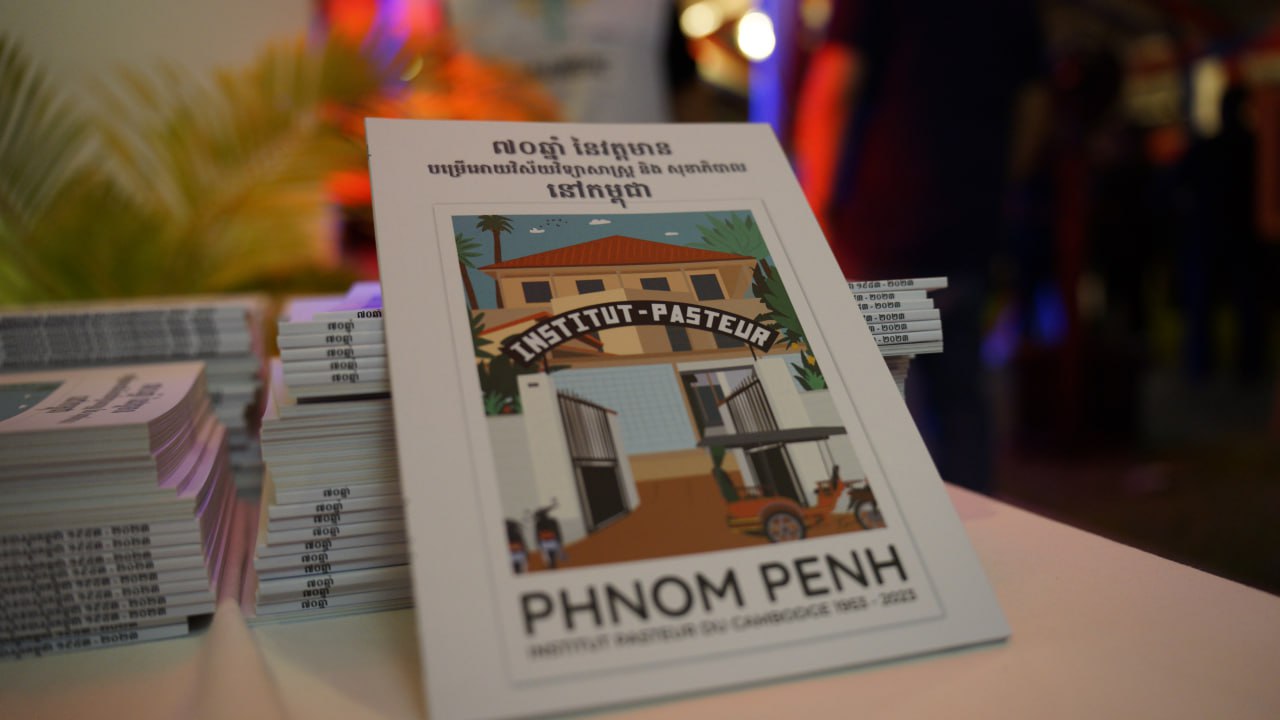
While the institute was first located in the southernmost parts of the Chroy Changvar peninsula and was mostly dedicated to veterinary purposes, it had no choice but to close with the fall of Phnom Penh in April 1975.
The existing buildings were almost entirely destroyed and the Cambodian team was decimated under the Khmer Rouge regime’s atrocities.
But as soon as 1986, the IPC rose from its ashes and started operating again in the building of the Hygiene, Epidemiology, and Public Health Institute in Tuol Kork. It was then called the Institut Pasteur de Phnom Penh.
Finally, in 1994, the IPC moved to its current location in the Northern part of Monivong boulevard. Since then, the number of staff surged, passing from less than 70 in the early 2000s to over 300 people of 14 different citizenships today.
Since 2008, the institute is equipped with a P3 biosafety laboratory, which allows it to identify and do research on some of the most dangerous viruses in the world under excellent safety conditions.
After 70 years in Cambodia, the IPC still has tons of ongoing activities in Cambodia. In addition to the many research projects that it carries out across the country’s provinces on emerging diseases, antibiotic resistance, or venereal diseases, it now plans to expand the current facilities in Phnom Penh.
“It is still in the early stages, but the idea is to anticipate what will be the Institute’s and the country’s needs in terms of biomedical research for the coming 30 years,” said Spiegel, adding that construction work is not expected to start before two years.
In the meantime, celebrations will be hosted in Phnom Penh throughout the year to mark the IPC’s 70th birthday. A photo exhibition is currently displayed on the walls of the French Embassy and will be on until September.
On June 8, a conference called “The Three Lives of Louis Pasteur”, the paternalistic figure who founded the Pasteur Institutes’ network, will be held at the French Institute.






